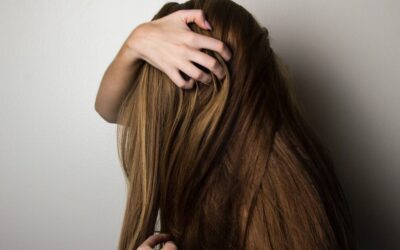Imagine waking up one day and noticing clumps of hair on your pillow or observing a rapidly receding hairline in the mirror. This nightmare has become a reality for many teenagers with alopecia in Ireland, each of them grappling with the startling onset of hair loss.
Alopecia is more prevalent among Irish teens than most people often realise. It’s a tough journey, filled with emotions ranging from confusion and fear to frustration and isolation. But amidst these difficulties, there’s hope and support available. This guide explores the realities of alopecia for Irish teens, offering pathways to understanding, coping mechanisms, and valuable resources.
From Patches to Complete Hair Loss: Understanding Teenage Alopecia
Alopecia, in its simplest terms, refers to the medical condition that causes excessive hair loss. This disorder presents in multiple forms, such as androgenetic alopecia (pattern baldness), telogen effluvium (diffused thinning of hair), traction alopecia (hair loss triggered by hairstyles that pull or strain the hair excessively), and alopecia areata (patchy hair loss).
While the exact cause of these different types of alopecia is not entirely understood, they are believed to result from a combination of genetic predisposition and various environmental factors. In the case of teenagers, certain triggers like hormonal changes, stress and hairstyling practices are known to be commonly associated with the onset of alopecia.
Hormonal changes during adolescence often play a significant role, especially in androgenetic alopecia, where increased levels of androgens (male hormones present in both males and females) can lead to hair thinning and loss.
Stress is another common trigger for alopecia in teenagers. This can lead to conditions like telogen effluvium, where high-stress levels drive more hair follicles into the resting phase, resulting in a general hair thinning across the scalp.
On the other hand, traction alopecia is often associated with certain hairstyles or hair treatments that exert continuous tension on the hair. In teenagers, this can be due to the popularity of tight ponytails, braids, or the frequent use of heat-based styling tools.
Lastly, alopecia areata, an autoimmune disorder, is thought to be triggered by the body’s immune reaction to certain stressors. However, the exact causes are still a subject of ongoing research. Nutritional deficiencies or sudden weight loss also contribute to excessive hair loss in some cases.
In spite of these known triggers, it’s important to remember that every individual’s experience with alopecia will be different and could be influenced by factors yet to be fully understood by medical science. As research continues, our understanding of this complex condition will increase, paving the way for better diagnostic, preventive, and therapeutic strategies.
What Is the Impact of Alopecia on Teenagers?
Hair loss can be a significant challenge for teens. Adolescence is a pivotal period for developing self-identity and self-esteem, which are often closely linked to one’s physical appearance. Alopecia, with its hallmark of uncontrollable hair loss, poses a risk of altering an individual’s self-image, potentially leading to feelings of estrangement and inadequacy.
Alopecia can lead to more than just physical changes. It can also profoundly affect teenagers emotionally. It’s hard for adolescents to deal with alopecia, especially when they have to worry about fitting in with their peers. Suddenly, they might feel like they are not good enough anymore. They could also be the targets of bullying, which might lead to them avoiding social interactions and feeling isolated. These feelings could worsen in the current digital age, where appearance is highly valued and constantly scrutinised.
External changes often spark internal strife, and for teenagers with alopecia, the impact on mental wellness is profound. Fears about personal attractiveness, doubts about prospects, and anxiety about peer acceptance can swirl together, creating a storm of emotional challenges. The psychological effects may manifest in various ways, from a dip in academic performance to reluctance to participate in formerly enjoyed activities.
What Professional Support Is Available for Teenagers With Alopecia in Ireland?
Help is at hand for teens experiencing excessive hair loss, whether in Dublin, Cork or elsewhere in Ireland. A variety of professional support services tailored to help manage the condition’s physical and emotional challenges is available.
Among the healthcare professionals specialising in this field are dermatologists and trichologists. They offer expert guidance on the condition, focusing on individual needs and treatment options. These specialists are well-equipped with the knowledge to advise on the various aspects of hair loss, ensuring that teenagers receive the most current and effective alopecia treatments in Ireland.
Mental health support is also a fundamental component of the available services, with therapists and psychologists offering counselling specifically designed to address the emotional and psychological impact of living with alopecia. These professionals provide a safe space for teenagers to express their feelings and concerns, working together to develop coping strategies that mitigate the stress and anxiety often associated with the condition.
In addition to medical and psychological support, there are several organisations throughout Ireland dedicated to assisting those with alopecia. These include support groups that play a crucial role in the coping process. These groups offer a platform for teenagers to connect with others going through similar experiences, fostering a sense of community and belonging. Both online and in-person meetings enable teenagers to share stories, exchange tips, and offer mutual support, reinforcing the idea that they are not alone in their journey.
Coping Mechanisms and Self-Care for Teens With Hair Loss
In managing alopecia, personal daily habits can also serve as powerful coping tools for teenagers. This could include exploring methods to deal with the condition’s physical effects, such as trying out attractive wigs or donning fashionable head covers. These choices allow individuals to control their appearance, boosting self-confidence and comfort.
Paying attention to personal health by maintaining a balanced diet and regular exercise routine is also essential. Some studies suggest that adopting nutrition-rich diets and engaging in frequent aerobic exercises might positively influence the condition. Physical fitness not only improves overall health but also uplifts mood and reduces stress, both of which are important when coping with alopecia.
Incorporating mindfulness practices, such as yoga or meditation, can be beneficial. These practices cultivate inner peace and promote self-acceptance. They offer a valuable counterpoint to a society that places too much emphasis on outward appearances. By fostering a tranquil mindset, teenagers with alopecia can navigate their journey with a sense of calm and resilience, reinforcing their inner strength against physical changes.
How to Support Teenagers With Alopecia in Ireland
Dealing with hair loss is not easy, especially for teens. As such, parents, loved ones and the community in general need to come together to provide support and understanding to teens with alopecia.
The Role of Parents and Loved Ones
Parents and family members play a vital role in providing emotional support and validation to a teenager dealing with alopecia. They can provide encouraging words that boost the teenager’s self-confidence as they navigate this personal journey.
By maintaining open lines of communication, they can help the teenager feel heard and understood. Additionally, their active involvement in researching and accessing relevant resources, such as professional hair loss treatment and support groups, equips them with essential tools to manage the condition.
The Contribution of Friends and Schools
The impact of friends and school environments on teenagers’ self-perception and mental well-being is significant. Peers, through their empathetic understanding and acceptance, can positively influence a teenager’s experience with alopecia. Schools can further amplify this supportive environment by integrating alopecia awareness and education into their curricula. This holistic approach fosters an inclusive, understanding environment, thus reducing the stigma associated with hair loss.
Community Engagement
Support from the broader community in Ireland can significantly impact a teenager’s journey with hair loss. Initiatives like public awareness campaigns, fundraising events, and volunteering for local alopecia charities provide practical expression of the community’s commitment towards supporting teenagers with alopecia. These actions not only contribute towards finding effective treatments but also cultivate societal empathy and acceptance.
To sum up, it is evident that dealing with alopecia is a journey fraught with both physical and emotional challenges. However, with the wealth of professional help available coupled with the genuine support of family, friends, and the community in Ireland, teenagers will not need to face this journey alone.
The path to accepting alopecia may not always be straightforward. However, with the right resources, a supportive network, and a focus on physical and emotional well-being, teenagers can navigate this part of their lives with strength and confidence. Living with alopecia is not just about managing hair loss. It is also an opportunity for self-discovery, resilience building, and advocating for oneself and others in similar situations.
Is your teen experiencing excessive hair loss? Early professional intervention can make all the difference. Talk to our expert trichologist – renowned for helping many teenagers with alopecia in Ireland. Call us now on +353 (0)1 679 3618 or click here to book a consultation!
Royalty-free image supplied from Pexels as part of the SEO service from 3R



